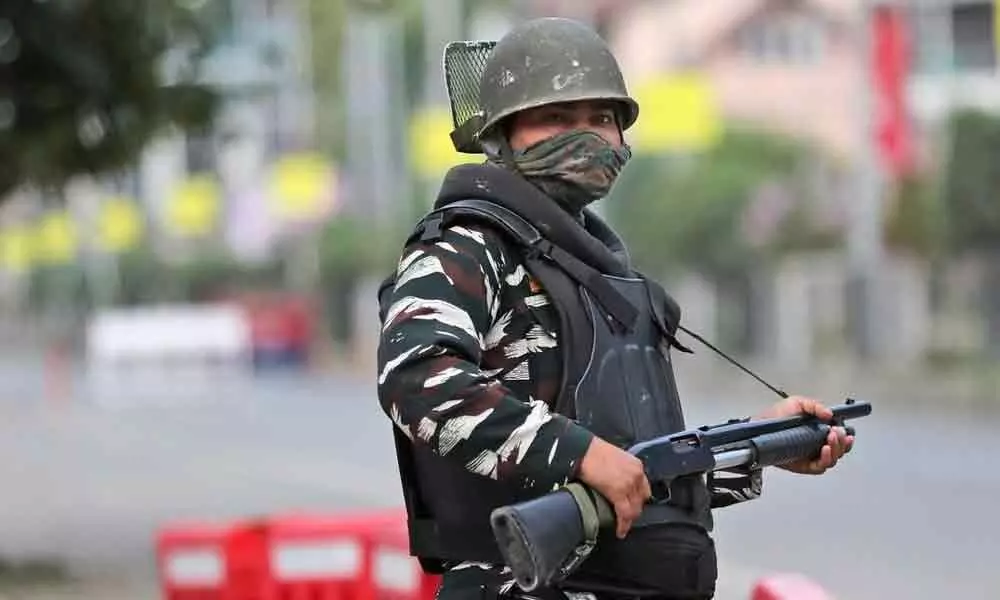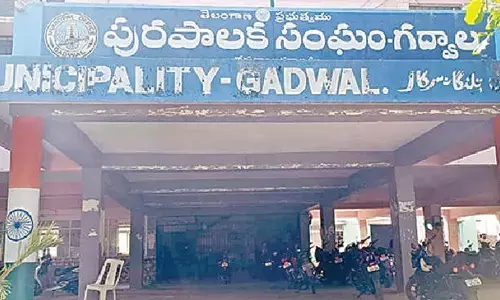Intriguing brass tacks of VIP security

Very early in my service, I had a personal experience with how the security arrangements can work or, for that matter, fail to work, while I was working as the Sub Collector in Ongole. The Andhra agitation was going on, and C Ramaswamy, my batchmate from the IPS, and the Superintendent of Police of the district, had arranged a constable to take care of my personal safety. He dropped in one night for a surprise check and found the constable in civilian clothes, sleeping on the veranda. What was more, he had no weapon! When Ramasamy asked him whether he would run away if someone attacked me, the constable did not know where to look!
Travel offers many attractions. One is exposed to different cultures with various languages, forms of music, dance and painting, sculpture etc., and also to customs that vary sharply from place to place and people to people. In over four decades of public service, I have had the opportunity to travel widely, both within the country and abroad. As a matter of fact, it is much easier to satisfy one's desire for international travel than to be able to say that one has seen all that is worth seeing in our country. In my own case, there are but a few places abroad, such as Spain, Egypt, New Zealand and the Caribbean, that I am left with a desire to visit now.
On the other hand, my residual travel agenda for India, including, as it does, places such as Daman and Diu, Lakshadweep and Arunachal Pradesh, is substantial indeed. Although most of my travel was on account of official work, I was always able to take time off for sightseeing and absorbing the ambience of different places in the world. I have chronicled elsewhere some of the highlights and interesting aspects of my travels.
From the official point of view, however, one aspect that attracted my attention was the manner in which security of visiting dignitaries was handled by the administrations in different countries. It was in 1982 that I went to Singapore with the then Vice President of India Justice Hidayatullah. Naturally, Hidayatullah travelled in an official convoy everywhere he went. The system followed in Singapore for a convoy was that they had two motorcycle outriders piloting the VVIP vehicle. As soon as a junction was reached, one of them sped away to the next.
By the time the convoy reached the next junction, the outrider, who was already waiting there, joined the convoy, while the one who was accompanying the convoy earlier sped off to the next one. And so on. The result was that vehicular traffic on the roads was only held up for the amount of time the convoy took to travel between two junctions. A very ingenious method I felt, a system that caused the minimum inconvenience to the citizens and the least possible dislocation to traffic.
Another interesting exposure I had, to the provision of personal security to VVIPs, was in Israel, where, as I have mentioned elsewhere earlier in this column, I had gone with a team led by Sharad Pawar. The police official detailed to look after the VVIP had an earphone plugged into his ear (just as we have the Bluetooth plugs these days). Through that arrangement, he was able to get reports from all surrounding areas about the suspicious movements of persons and vehicles etc.
It was Hidayatullah, again, whom I accompanied, while he was on a visit to Japan. As soon as we had settled down in hotel rooms, I tried to reach him on the phone. To my surprise I got through to a security official who interrogated me as to my identity before he, himself, extended the line to Hidayatullah! I have never seen such elaborate precautions being taken by the security officials, before or after, in any other country.
I had another interesting brush with the security apparatus when I was in Bombay with Vice President Hidayatullah. We were staying at the Raj Bhavan at the invitation of the Governor. The guest house where we were staying was a small cottage and had a nice little garden surrounding it. Chief Minister A R Antulay had come there to call on the Vice President. I walked out to receive Antulay. Imagine my surprise when I found him fretting and fuming and red in the face. In an angry voice he asked me, "Who is in charge of the arrangements here? Why is my car being forced to stop so far away from the cottage? Do I have to walk all the way now?" I retained my cool and told him that the arrangements had actually been made by the security staff of the State government (of which he was the head!).
After digesting that piece of information, he calmed down and walked in. Very early in my service, I had a personal experience with how the security arrangements can work or, for that matter, fail to work, while I was working as the Sub Collector in Ongole. The Andhra agitation was going on, and C Ramaswamy, my batchmate from the IPS, and the Superintendent of Police of the district, had arranged a constable to take care of my personal safety. He dropped in one night for a surprise check and found the constable in civilian clothes and sleeping on the veranda. What was more, he had no weapon! When Ramasamy asked him, in zest, whether he would run away if someone attacked me, the constable did not know where to look!
It was during Ongole days, again, when I had to rush to a place called Vetapalem in my subdivision to pacify a group of unruly students on the rampage. As we reached the spot, which was just outside the railway station, I found that the students were in a violent mood and armed with cycle chains and soda bottles filled with gramophone needles etc. The DSP and I were all by ourselves. I just walked into the crowd and started talking to a few people who recognised me. Within minutes, normalcy was restored, and the students dispersed peacefully. The DSP was quite upset that I had taken such a grave risk. But, then, there are times when nothing works like goodwill and a bit of charm.
(The writer is former Chief Secretary, Government of Andhra Pradesh)








